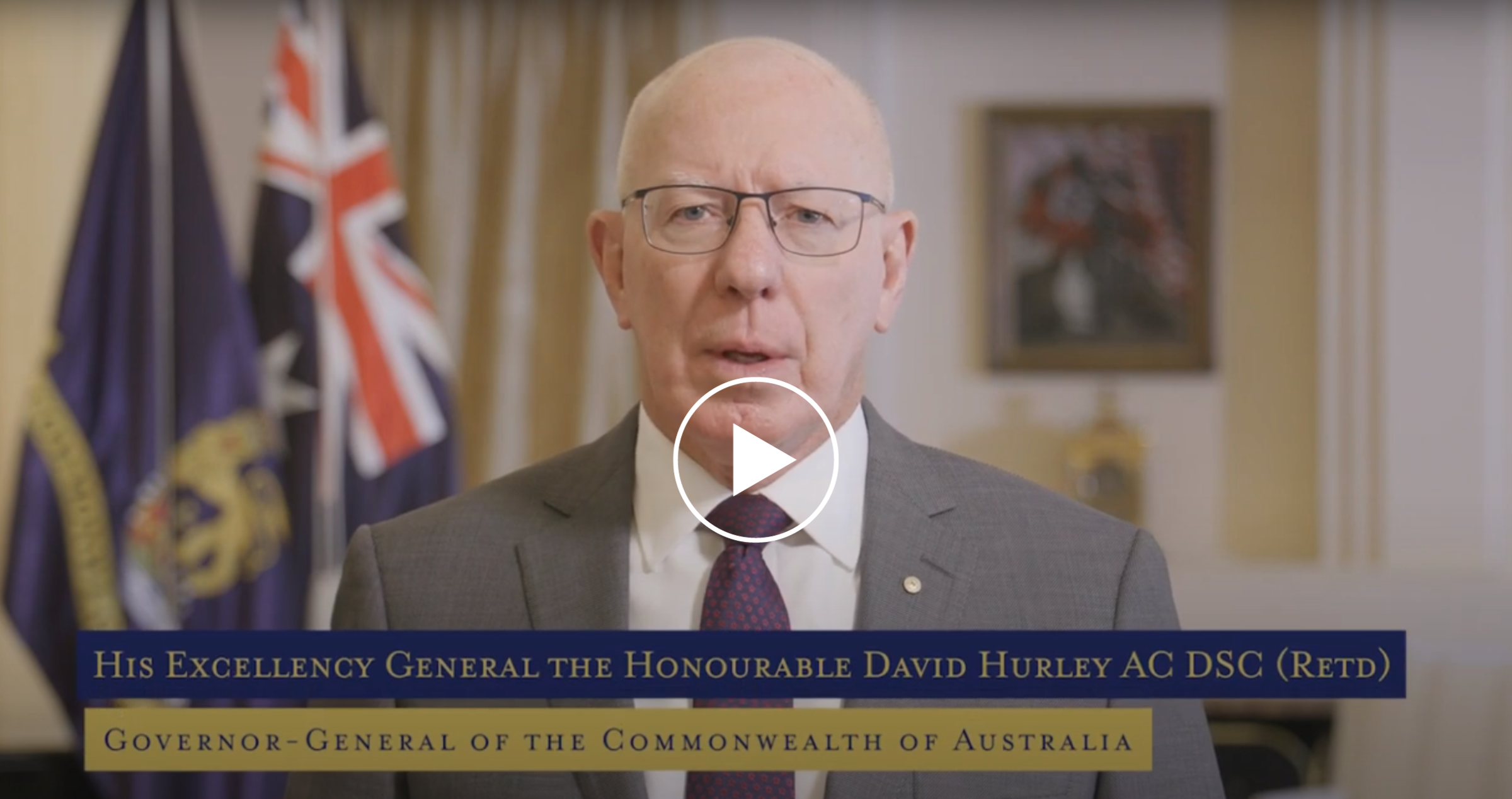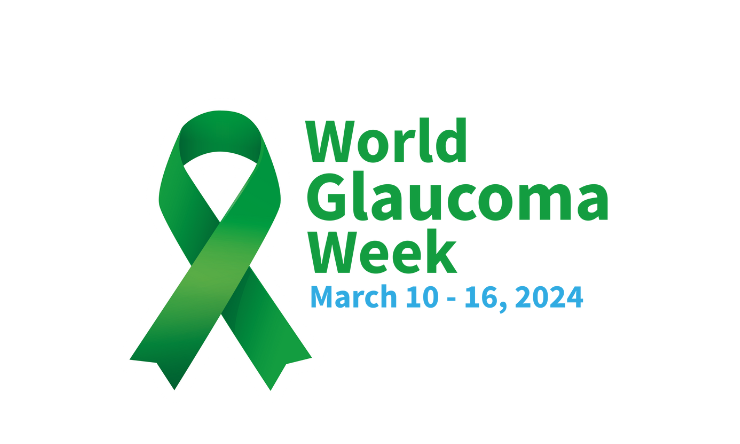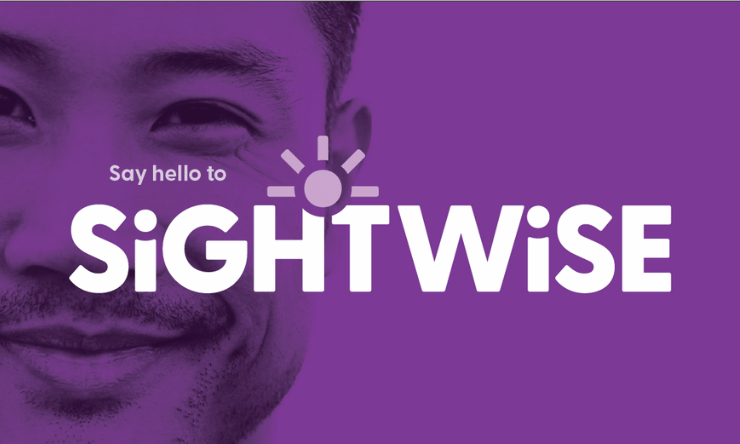Share
Sydney, Australia – What is the normal range of intraocular pressure (IOP) in children and young adults, and does it predict later glaucoma? That is the question the recipient of Glaucoma Australia’s ‘Quinlivan’ Research Grant seeks to answer.
Glaucoma Australia and its Patron, the Governor-General of Australia, His Excellency the Honourable David Hurley, are pleased to announce the 2023 glaucoma research grant is awarded to Professor David Mackey AO, Professor of Ophthalmology at the Centre for Ophthalmology and Visual Sciences, The University of Western Australia.
“I congratulate Professor Mackey on receiving the 2023 Glaucoma Australia ‘Quinlivan’ Research Grant. Since his pioneering work into glaucoma genetics research in 1994, Australia has led the world in this field. I’d like to thank Professor Mackey and his fellow researchers for their continued work, and I wish them the very best in their future endeavours to eliminate glaucoma blindness,” the Governor-General said.
Glaucoma is a leading cause of blindness worldwide. The main risk factors for glaucoma are family history, genetics and elevated eye pressure.
Although we know that middle-aged and older adults with high eye pressure are more likely to develop glaucoma, there is surprisingly little information on eye pressure in young adults and children.
Lead Investigator Professor Mackey, who is the world’s most published author in glaucoma genetics, said data on the range and changes of intraocular pressure (IOP) during childhood and early adulthood is limited in both people with a high genetic risk of glaucoma and the general population.

“Although we can now provide a newborn baby their genetic risk for developing glaucoma in adult life, we do not know when we need to initiate examination or intervention in at-risk individuals,” Prof Mackey said.
“We lack data on the normal range of IOP in children and have presumed it is the same as for adults. Funding from the Quinlivan Research Grant will enable us to collect and analyse data from young participants in the Raine Study, whose parents have been followed by researchers for their entire lives. This will enable never-before possible research into the genetic, lifestyle and intergenerational aspects of IOP, as well as the creation of an IOP reference range for children."
Co-investigator and Postdoctoral Research Fellow Dr Samantha Lee said new technology allowed researchers to more easily, and less invasively, measure eye pressure in children with minimal discomfort or need for stinging anaesthetic eye drops.
“We will measure eye pressure in children from the third generation of the Raine Study cohort, to determine the normal range in this age group. We will also examine young adults to determine eye pressure changes through early adult life and whether genetic risk influences pressure at a young age."
“This will improve our ability to monitor children and young adults at high risk of developing glaucoma and allow more timely intervention with the aim of decreasing glaucoma blindness,” Dr Lee said.
Glaucoma Australia CEO Richard Wylie said “We are committed to supporting Australian research projects like this one which aims to increase the rate and reliability of early detection of glaucoma”.
“Being able to identify a child or young adult in need of sight saving glaucoma treatments is a blessing and we are incredibly proud to support Prof Mackey and his team in this important work,” Mr Wylie added.
The Glaucoma Australia ‘Quinlivan’ Research Grants are awarded following rigorous evaluation, based largely on the National Health and Medical Research Council (NHMRC) process, along with peer review, to ensure that the successful applicants meet the highest standards. Submissions are reviewed by the Glaucoma Australia Independent Research Panel consisting of internationally recognised experts in glaucoma research including the fields of Ophthalmology, Optometry and Pharmacy.
The research funds would not be possible without the generous gifts of donors who support Glaucoma Australia’s William A. Quinlivan Research Fund.
Every year, this research plays an integral role in developing improvements in eye health and glaucoma treatments. Contributions to this ongoing research are welcome by making a tax-deductible donation to Glaucoma Australia today.
-ENDS-
For more information
Richard Wylie
CEO glaucoma Australia
(02) 9411 7722
ceo@glaucoma.org.au
About Professor David Mackey
Professor David Mackey AO is an NHMRC Practitioner Fellow. He is the former Managing Director of the Lions Eye Institute (2009-19), a councillor of the Royal Australian and New Zealand College of Ophthalmologists (RANZCO) and current RANZCO representative on the Council of the Asia Pacific Academy of Ophthalmology.
He is past president of the International Society for Genetic Eye Disease and Retinoblastoma. David is a renowned international researcher in the genetics of eye disease and has published over 400 peer reviewed papers since 1989. He is the world’s most published author in glaucoma genetics and is a lead investigator in the International Glaucoma Genetics Consortium and the Consortium for Refractive Error and Myopia.
In 1993, Professor Mackey initiated the Glaucoma Inheritance Study in Tasmania, thereby creating one of the largest glaucoma biobanks in the world, with over 5,000 DNA samples and clinical material from familial and sporadic cases of glaucoma.
About the Raine Study
Based in Perth, Western Australia, the Raine Study is the world’s first pregnancy cohort and is one of the largest and longest-running studies of human health from pregnancy through to adulthood to be carried out anywhere in the world.
Established in 1989, 2,900 pregnant women from Perth’s King Edward Memorial Hospital were invited to take part in a study of ultrasound during pregnancy, with the goal of helping scientists investigate the origins of a child’s future health from before they were born.
Those parents and children, along with grandparents and the offspring of those original babies have taken part in eighteen different follow-up studies over 34 years, contributing to ground-breaking research on physical health, mental health, lifestyle, and genetics.
Find out more at https://rainestudy.org.au



